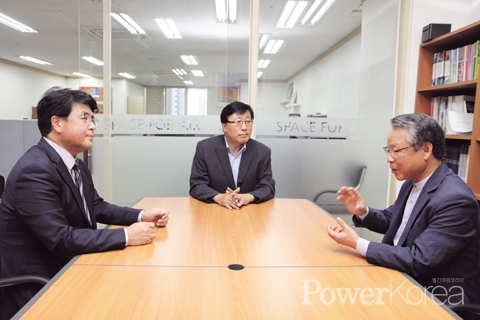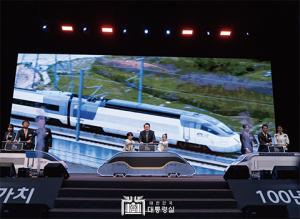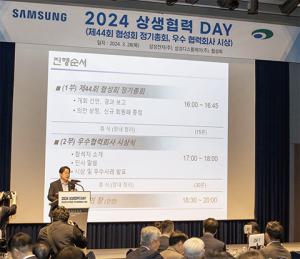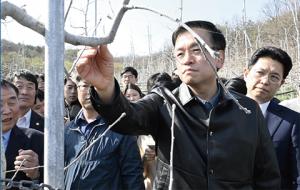 |
||
The Ministry of Land, Infrastructure and Transport recently has suggested the 110 Seohyeon-dong areas in Bundang District to be used as public houses for newly married couples. But it is encountering opposition from the residents and the land owners. <Power Korea> heard opinions of the church officials on the issue through an emergency board meeting last month. This month, I invited above mentioned two industry specialists to a discussion meeting and asked their professional opinions.
“Acquirement of land by compulsion without hearing opinions of residents and land owners MUST be stopped”
Host: <Power Korea> CEO Baek Jong-won
Invited to the discussion:
Korea Cultural Landscape Institute director Choi Ho-woon
TH Engineering and Architecture CEO Hyun Suk-won
Baek: How would you describe the government's 110 Seohyeon-dong area development plan?
Hyun: It is unacceptable. The government just announced the plan early July without asking or gathering resident’s opinions. They say that it had no problem administratively but it is a matter of live or die for the residents. Yet they are pushing forward the plan on their own initiative. The development in a form of ‘acquirement of land by compulsion’ was commonly practiced during the military regimes but the age calls for a change.
Baek: I learned the LH designated 13 areas for the public development early July this year. Most of them are green belts. What makes Seohyeon-dong different from these areas?
Choi: They (such as Eocheon in Hwaseong, Gajeong in Incheon, Gochon in Gimpo and Geomo in Siheung) are all limited development districts except Seohyeon-dong. The former makes public development relatively easy as the land price is cheaper and there is less possibility for resident opposition. Seohyeon-dong, on the other hand, is in the center of Budang District and is to be developed as a town.
Baek: Land compensation is decided by the Land Commission. Do you think the compensation is done appropriately?
Choi: The compensation is affected by the market price and the land value. In the case of Seohyeon-dong, the land value is relatively lower than the surrounding areas and also the price varies depending on the land, condition and the surrounding environment.
Hyun: I predict that the compensation might be far lower than the market price considering the examples of the previous public developments in Seongnam City or other areas. If this is the case, the land owners will not be happy.
Baek: Do you mean that the low compensation is the main reason of opposition?
Hyun: That is not all. The difference in understanding the issue between the residents and the land owners also plays the part. The former might worry about the drop in house price in the region and the latter about the compensation amount. Also, it is doubtful whether the houses can actually benefit the newly married couples in financial difficulty as high earning couples might take the benefit instead.
Baek: Don't you think that the government also has reasons to do this?
Choi: It certainly has in terms of land expropriation. But it must be done at the minimum except when building roads and bridges, etc. In other words, they need to separate the public projects from the private projects or the projects in which the land owners also can take part.
Hyun: To add another point, if it must nevertheless be done as the government planned, then it is absolutely necessary that the compensation must be negotiated appropriately and rationally with the residents and land owners so that it can satisfy both parties.
Baek: So we need to think things over whether the project actually benefits the public and whether the government also risks part of the loss it might occur?
Hyun: In the case of Seohyeon-dong, the land owners actually had a development plan before the government suggestion was brought up: the housing association parcels out the houses to the land owners and the residents at the 60 to 70% of the market price. It meant that the government's plan to supply 1,500 households in the area could also be done by the land owners while the government, on the other hand, asked them to make sure of its public interest in part of the development. In other words, the government should better leave it to private development if it can be done rather than just decide the public development plan already and seemingly ask the residents their opinions.
Choi: That’s right as long as the development doesn’t seem to profit the privately owned properties only. I think the government seems to push forward things too fast without listening to the opinions of the residents and the land owners.
Baek: So the most areas around Seohyeon-dong are privately owned?
Choi: I wonder why the government is making trouble by designating the privately owned areas for public development while there are other state-owned lands and idle sites.
Hyun: I heard that the Seohyeon-dong Emergency Board is preparing a petition to be sent to the Ministry of Land, Infrastructure and Transport. The main point of the petition is to cancel the designation and use the idle or state-owned lands in Baekhyeon-dong or around Ori station instead.
Baek: So the solution to the opposition seems for the government to use idle or state-owned lands?
Hyun: Baekhyeon-dong, for example, is good enough to create a public housing complex that can accommodate 1,500 households. Jeongja-dong, for another example, has the site for the Home Equipment Exhibition Hall. The lower floors of the building can be used for young startup centers like Seongnam City is working on at the moment and the upper floors can be used for housing. The Ori station area also has the site for the LH Gyeonggi office which actually is a commercial zone that can also accommodate 1,500 households. And there are many more alternatives in the city rather than the Seohyeon-dong areas alone.
Baek: Doesn't public development have advantages? It seems that it has more problems than advantages.
Choi: It certainly has advantages especially when it comes to the region that needs improvement of infrastructure and/or housing facilities. In other words, I think the areas with already well developed infrastructure could be better developed by the land owners in the region.
Baek: So how do you expect the issue to be processed?
Hyun: It depends on how the government deals with the designation. Seohyeon-dong is in the center of Bundang District and the land value is very high. Even if the development is done as the government planned, the benefit likely is to go to rich couples who can afford a house in the region when considering the land price and commercial advantages in Bundang District is very high. The government must remember that 2,555 people of the church already have decided their mind to oppose with action if the plan is enforced anyway.
Baek: Lastly, what would be the solutions that can be good for both parties?
Choi: I think the government should be flexible in terms of supplying houses. What is most important I think is that they had better ask or gather opinions of the residents and the land owners prior to their own decision and initiative.
이승호 기자 tauton@naver.com







